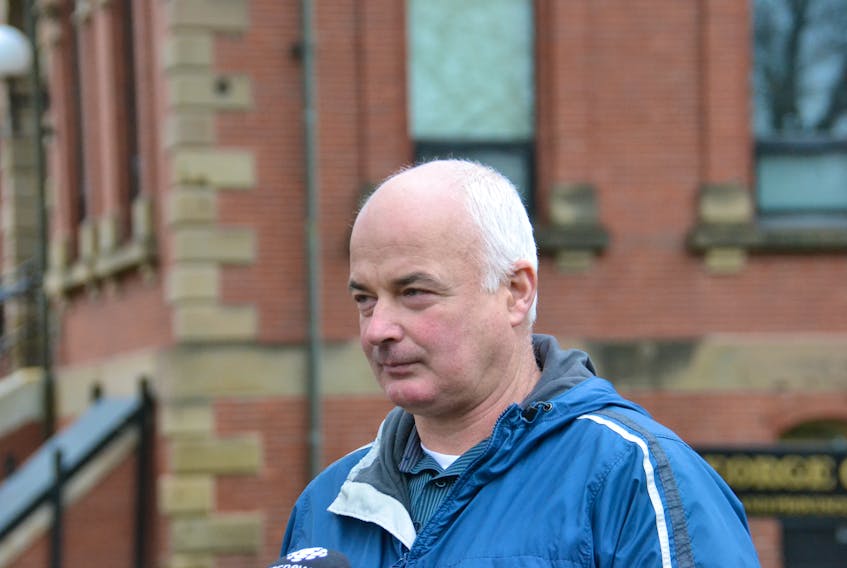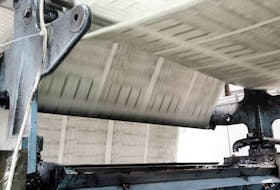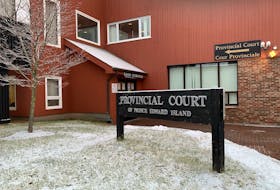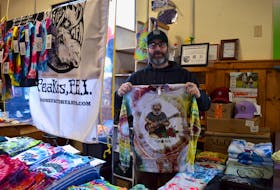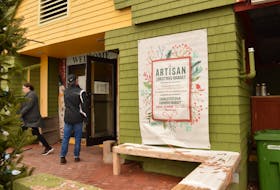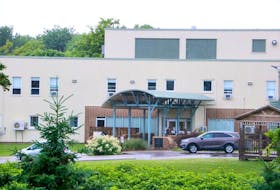Leaders of the National Farmers Union are urging MLAs to immediately establish a provincially-owned land bank, starting with land divested from large landowners due to a recent investigation into the Brendel land sale.
P.E.I.’s Agriculture Minister Bloyce Thompson said last week he has asked one corporation and two individuals to divest an unidentified amount of land after an IRAC investigation found a land transfer involving 2,200 acres of farmland near Summerside had contravened the Lands Protection Act.
The governing Progressive Conservatives pledged to establish a land bank in their election platform prior to the 2019 election.
During a presentation before the standing committee on natural resources and sustainability on Thursday, NFU women’s district director Edith Ling told P.E.I. members of the legislative assembly that small farmers are facing dual pressures of declining soil health and tightening margins.
“The National Farmers Union feels a strong current land banking program would help farmers access land at reasonable costs, thus enabling them to farm it in a more sustainable manner,” Ling told the committee.
The group recommended the proposed land bank be administered by the Department of Agriculture and Land and that this department be strengthened.

The NFU recommendations also included several measures focused on increasing transparency around land sales in P.E.I. These included altering the Business Corporate Registry to allow searches for directors and shareholders of Island corporations by name and allowing land sale recommendations made to cabinet by the Island Regulatory and Appeals Commission to be made public. Currently, these decisions are not public and cannot be accessed via Freedom of Information requests.
The group also recommended MLAs be required to take a course on the Lands Protection Act, the legislation that limits ownership of farmland by non-residents and corporations.
“Island politicians, over the past three decades, have been and continue to be woefully ignorant of the Lands Protection Act, which is entrenched in the Canadian Constitution,” NFU district 1 director Douglas Campbell told the committee.
Campbell said Premier Dennis King, prior to the 2019 election, had promised to establish a course on the act for all MLAs within six months of being elected. This has not occurred, Campbell said.
The group’s recommendations also included a call for a comprehensive strategy around a “sustainable farming model” in P.E.I.
The NFU has often criticized the “industrialized farming model,” employed in P.E.I., which involves large-scale monoculture production, usually linked with potato production. Members of the group pointed to declining concentrations of soil organic matter across the Island, often associated with intensive farming.
Campbell also said the biggest proponent for a lifting of a moratorium on high capacity wells for agricultural is the Irving-owned Cavendish Farms.
He said a discussion about high capacity wells cannot be separated from the question of whether large-scale industrial farming is the model that should continue to be used in P.E.I.
“We can't just open up the taps and allow irrigation to happen without (looking at) the whole sustainability around the land issue when it comes to the organic matter," Campbell said in an interview after appearing before the committee.
Earlier in the morning, the same committee had heard from Qing Lin a hydrogeologist with the Department of Environment, Water and Climate Change. Lin presented evidence that high capacity wells would have little effect on the overall groundwater levels on P.E.I.
“The Island has abundant groundwater to support social and economic needs, and high capacity wells are an environmentally friendly and economical efficient way to extract water,” Lin told the committee.
Have a presentation today at standing committee on high capacity wells from Qing Lin, a hydrogeologist from the Department of Env't, Water and Climate Change. Argument made is P.E.I. has "abundant water" and high capacity wells would not pose risk to stream flow levels. #peipoli pic.twitter.com/syQJ7CsJwl
— Stuart Neatby (@stu_neatby) November 5, 2020

